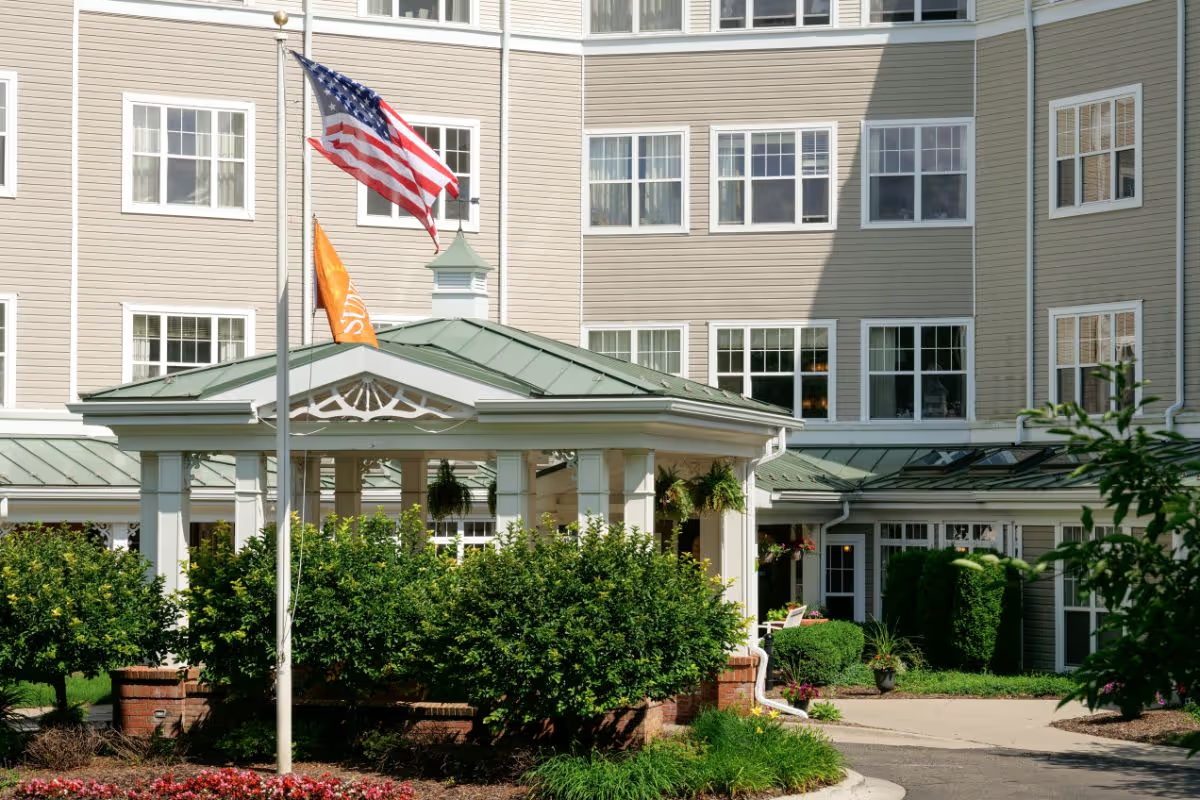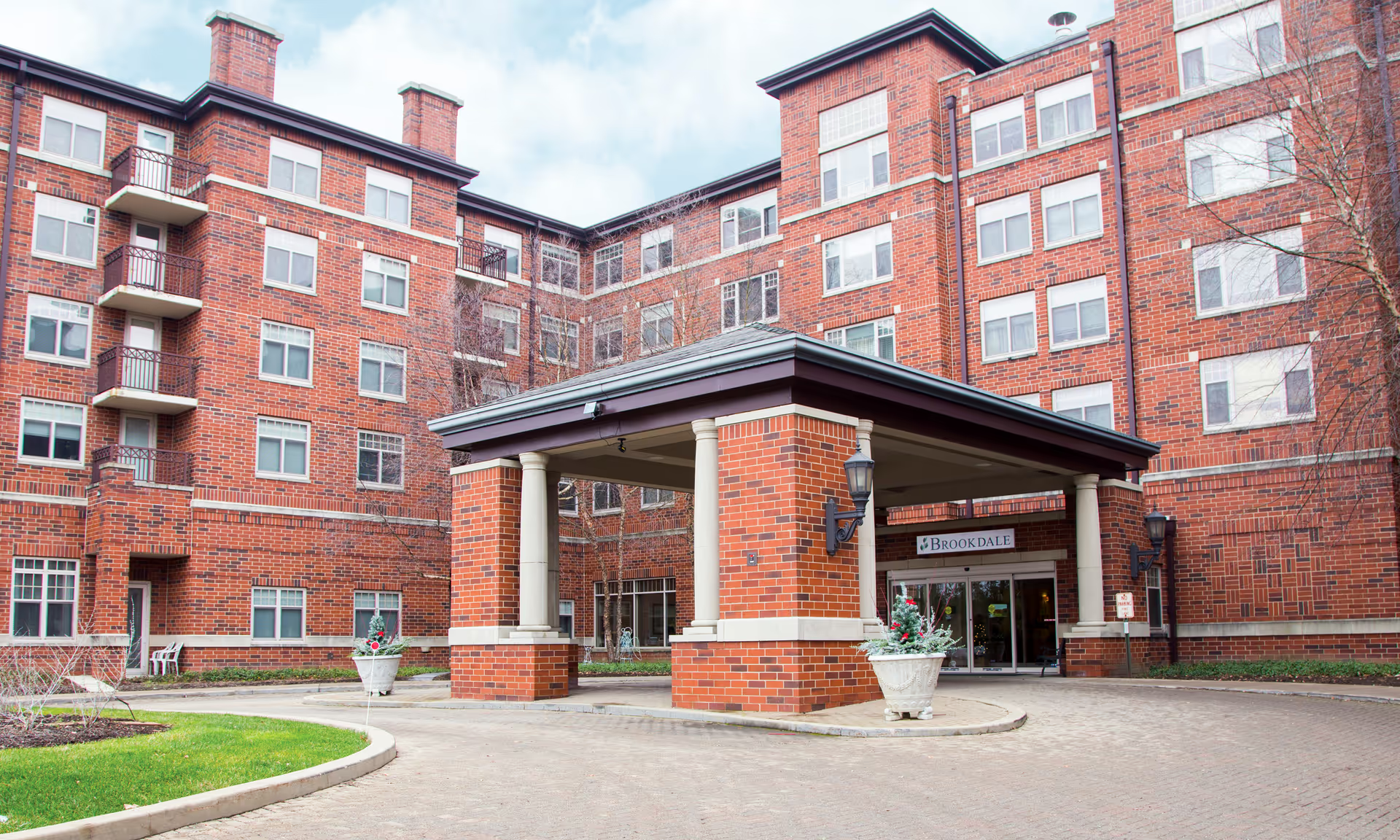Overall sentiment in the reviews is strongly positive about Fairmont Senior Living of Washington Township, with the dominant themes being compassionate, attentive staff; high-quality dining; active social programming; and well-maintained common spaces. A majority of reviewers praise caregivers, activity staff, and leadership by name, describing a family-like atmosphere where residents are greeted, known by name, and treated with warmth and respect. Many families emphasize peace of mind, noting that staff go "above and beyond," and multiple reviews single out long-tenured employees and specific department leaders (activities directors, DON, administrative staff) for consistent, personable care. The facility's public areas — bright common rooms, an elegant dining room, and updated/shared spaces — are frequently mentioned as hotel-like, welcoming, and conducive to socialization.
Dining and nutrition are repeatedly cited as particular strengths. Reviewers consistently describe excellent meals, an attentive chef, high-quality nutrition staff, and accommodating servers. Food is characterized as delicious, restaurant-quality, and an important factor in resident satisfaction. The facility also provides multiple meal choices, specialized feeding support when needed, and a dining program that supports social engagement around mealtimes. Related amenities such as an on-site salon, therapy gym, and regular transport for dental or other specialist visits add to perceived convenience and a continuum of care.
Activities and social life are another prominent positive theme. Families report a robust calendar with frequent onsite and offsite activities, entertainers (musicians, singers), holiday celebrations, lecturers, church groups, and opportunities for private family gatherings. Memory-care programming is noted as strong and nurturing by many reviewers: secure doors, hands-on care, and activities scaled to cognitive abilities are appreciated. The facility’s willingness to host family events and its animal-friendly approach (visiting cat, community dog) support a homelike, socially engaging environment.
Clinical services receive mixed-but-leaning-positive commentary. Several reviewers mention advantageous on-site clinical resources — an on-site family physician, podiatry, physical therapy — and effective communication from nursing leadership. Many families felt confident about medical oversight and saw noticeable improvements in conditions such as dementia. That said, there are recurring concerns about staffing that affect clinical consistency: reports of aides who are distracted, cell phone use, and aides who may not follow through on routine hygiene or clothing changes create variability in day-to-day care quality.
Facilities and accessibility are frequently praised for cleanliness, bright common areas, and accessible grounds; however, reviewers commonly point out shortcomings in resident rooms. Recurrent specifics include small room sizes, outdated finishes, worn carpeting (sometimes cited as a fall-safety issue), poor lighting, bolted windows, and limited in-room kitchen facilities (kitchenette or mini-fridge only). While many public spaces have been renovated and are described as modern and attractive, the condition and layout of private rooms are a consistent area families wish were improved.
Cost, staffing, and operational concerns appear repeatedly and temper the overall positive sentiment. Multiple reviews note that the community is expensive; some single out high medication-management costs. Staffing shortages and difficulty retaining qualified aides and nurses are a frequent theme and are linked by families to slower call responses, inconsistent training, and occasional lapses in care (meal cleanup, follow-up after falls, hydration monitoring). A few reviews describe more serious lapses or adverse outcomes (rapid decline, ER visits, and death during a short stay) and complaints of poor clinical follow-up; these are outliers but significant, and they contribute to concern about reliability for some families.
Management and communication are characterized as generally effective and personable by many reviewers — with named staff receiving praise for upfront, helpful communication and smooth transitions — but there are also accounts of inconsistent management practices or negative impressions after ownership changes. Some families report improved performance under new management while others cite worries about administrative issues such as billing, Medicaid/waiver limitations, bed availability, or perceived lack of transparency. Social dynamics among residents (some finding other residents unfriendly) and occasional problematic behaviors (smoking at the front door, alcohol/cigar use on porches) are additional nonclinical factors that affect fit for some families.
In summary, Fairmont Senior Living of Washington Township is widely viewed as a caring, activity-rich community with standout dining and many supportive services; it excels at creating a warm, family-like atmosphere and offering varied programming and clinical amenities on site. The most important caveats are variability tied to staffing shortages and training, small or dated private rooms and some safety/cleanliness lapses, and relatively high costs. Prospective families should weigh the facility’s strengths in communal life, food, and leadership against occasional reports of inconsistent aide performance and room-level maintenance issues. For families prioritizing social engagement, strong dining, and personalized attention from long-tenured staff, the community earns strong endorsements; for those most concerned about room size, tight staffing, or cost/Medicaid constraints, a careful in-person tour and direct questions about staffing ratios, training protocols, incident follow-up, and room updates are advisable before deciding.







